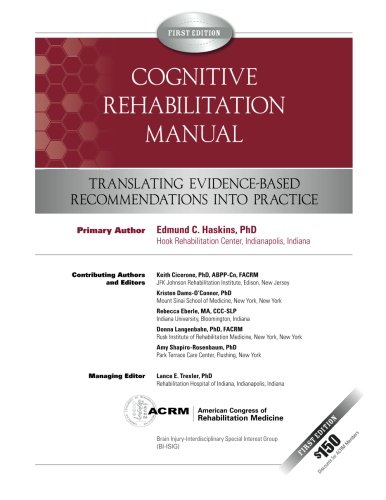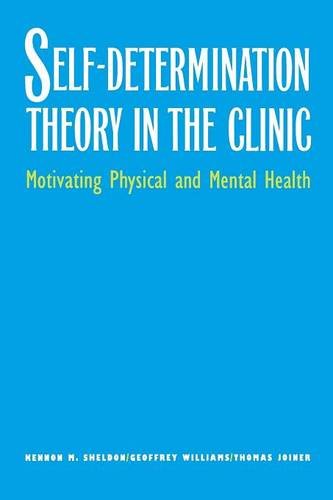Top products from r/slp
We found 35 product mentions on r/slp. We ranked the 86 resulting products by number of redditors who mentioned them. Here are the top 20.
1. Eliciting Sounds: Techniques and Strategies for Clinicians
Sentiment score: 3
Number of reviews: 4
NewMint ConditionDispatch same day for order received before 12 noonGuaranteed packagingNo quibbles returns
 Show Reddit reviews
Show Reddit reviews2. Counseling Persons with Communication Disorders and Their Families
Sentiment score: 2
Number of reviews: 2
Used Book in Good Condition
 Show Reddit reviews
Show Reddit reviews3. My Stroke of Insight: A Brain Scientist's Personal Journey
Sentiment score: 1
Number of reviews: 2
MY STROKE OF INSIGHT
 Show Reddit reviews
Show Reddit reviews4. An Advanced Review of Speech-language Pathology: Preparation for the Praxis and Comprehensive Examination
Sentiment score: 3
Number of reviews: 2
online access code to practice testsfourth edition
 Show Reddit reviews
Show Reddit reviews5. Mosby's Review Questions for the Speech-Language Pathology PRAXIS Examination
Sentiment score: 1
Number of reviews: 1
 Show Reddit reviews
Show Reddit reviews6. The Man Who Mistook His Wife For A Hat: And Other Clinical Tales
Sentiment score: 1
Number of reviews: 1
Great product!
 Show Reddit reviews
Show Reddit reviews7. Cognitive Rehabilitation Manual: Translating Evidence-Based Recommendations into Practice (Volume 1)
Sentiment score: 3
Number of reviews: 1
Used Book in Good Condition
 Show Reddit reviews
Show Reddit reviews8. Head Cases: Stories of Brain Injury and Its Aftermath
Sentiment score: 0
Number of reviews: 1
 Show Reddit reviews
Show Reddit reviews9. Linguistics for Clinicians (Arnold Publication)
Sentiment score: 0
Number of reviews: 1
 Show Reddit reviews
Show Reddit reviews10. Dysphagia: Clinical Management in Adults and Children
Sentiment score: 0
Number of reviews: 1
Mosby Inc
 Show Reddit reviews
Show Reddit reviews11. Motor Speech Disorders: Substrates, Differential Diagnosis, and Management
Sentiment score: 0
Number of reviews: 1
Mosby
 Show Reddit reviews
Show Reddit reviews12. The Official Guide to the GRE Revised General Test, 2nd Edition (GRE: The Official Guide to the General Test)
Sentiment score: 1
Number of reviews: 1
Does not include the CD with the simulated computer based practice tests
 Show Reddit reviews
Show Reddit reviews13. Netter's Atlas of Anatomy for Speech, Swallowing, and Hearing
Sentiment score: 1
Number of reviews: 1
 Show Reddit reviews
Show Reddit reviews14. It's Okay To Be Different (Todd Parr Classics)
Sentiment score: 1
Number of reviews: 1
Little Brown Young Readers
 Show Reddit reviews
Show Reddit reviews15. Self-Determination Theory in the Clinic: Motivating Physical and Mental Health
Sentiment score: 2
Number of reviews: 1
 Show Reddit reviews
Show Reddit reviews16. CalmEaze- Anti Anxiety & Stress Relief Supplement Gives Relaxation Support to Help Calm Your Mind
Sentiment score: 0
Number of reviews: 1
 Show Reddit reviews
Show Reddit reviews17. The Voice and Voice Therapy
Sentiment score: 1
Number of reviews: 1
Used Book in Good Condition
 Show Reddit reviews
Show Reddit reviews18. The Brain That Changes Itself: Stories of Personal Triumph from the Frontiers of Brain Science
Sentiment score: 0
Number of reviews: 1
lucid fascinating mind brain
 Show Reddit reviews
Show Reddit reviews

I do an activity using the book It's Okay to be Different. First, we read the book, then the kids make a person out of contruction paper using a math glyph format by answering questions about themselves.
If you live with one parent, you get a square head; if you live with two parents, you get a triangular head; if you live with no parents, you get a round head.
If you have a pet, you get a red shirt; if you do not have a pet, you get a blue shirt.
If you like math best, you get green pants; if you like reading best you get yellow pants.
The number of eyes is the same as the number of children that live in your house.
The pictures turn out really cute, and all my kids from pre-k through 8th love it because it's funny.
If you're interested I can probably email you the pattern I use to make the people tomorrow night. PM me your email address if you'd like it.
Thanks for the kind words..
Because motivation is so closely tied to satisfying basic psychological needs, most of what works for kids works for adults. The book above does a good job of putting theoretical concepts into clinical practice as does this book by some of the same authors:
https://www.amazon.com/Goal-Setting-Motivation-Therapy-Engaging/dp/1849054487/ref=sr_1_2?ie=UTF8&qid=1473017647&sr=8-2&keywords=motivation+goal+setting
This book focuses on adults and self-determination theory, which has solid evidence supporting it and is a good match for rehab - this book isn't as rehab oriented as the other book - more geared towards MDs but a lot of the discussion will be very relevant to working with dysphagia and dealing with adherence.
[https://www.amazon.com/Self-Determination-Theory-Clinic-Motivating-Physical/dp/030019983X/ref=sr_1_1?ie=UTF8&qid=1473017793&sr=8-1&keywords=self-determination+theory+in+the+clinic]
(https://www.amazon.com/Self-Determination-Theory-Clinic-Motivating-Physical/dp/030019983X/ref=sr_1_1?ie=UTF8&qid=1473017793&sr=8-1&keywords=self-determination+theory+in+the+clinic)
There's no way to effectively think about how to promote motivation without understanding theories of motivation. When you understand the theories, what you should or shouldn't do becomes more or less obvious. selfdeterminationtheory.org has many free to download articles.
Congratulations! I can only speak to my own experience, but I took a (non-required) introduction to communication sciences and disorders online class before really starting my postbacc year and we used this book. Having read most of this book for class has been SO helpful for me! I don't know how your program is structured, but I started my postbacc year with language development, anatomy and neuroanatomy so there was no real "introduction." This book/class gave me a framework to put everything I was learning into and made sure that it wasn't all brand new to me. Just a thought! And obviously, I've linked the 2nd edition because there's no need to spend $130 on the new shiny one when you're not using it for class or therapy! :) Best of luck.
This is a very big question and not one that can really be answered in a forum post.
Physical intervention is about managing the present moment - preventing (further) harm. It is upsetting and unless carefully planned by a behavior therapist, there's no reason to think that it will improve future behavior. In most cases, that's not its point.
There are definitely steps you can take to decrease the likelihood that there will be a physical conflict. It's important to realize that these steps aren't harmless, though. You have to look at the individual case to determine what's best for the kid. There's a tendency to assume that physical intervention is always the worst, most harmful thing and everything else is inherently better. For example, using extinction (planned ignoring) on head banging might allow the child to hit their head hundreds of times before the behavior remits. Anyway, here's some suggestions:
I would also suggest the book Eliciting Sounds, we used it for Artic and everyone I know who used it in their peds placement said it was a godsend. it's a small spiral bound book that you could easily fit in your bag/purse and it's got direct & easy to follow techniques.
A professor of mine had a book she let me borrow (I also think she helped write it, so that helped) which had sections for each section there would be on the exam so a whole section on artic, on language, on voice, etc. Each section had a number of questions to answer and then a key in the back of the book. Super helpful to at least go through once to get the idea. I think it was this one here though it's a bit expensive.
My Stroke of Insight by Jill Taylor: A neuroscientist has a stroke and learns to walk, talk, eat, write, or recall her memories.
The Man Who Mistook His Wife for a Hat by Oliver Sacks: Interesting case studies of patients who suffered from extreme/rare neurological disorders.
Far From the Tree by Andrew Solomon: Not necessarily speech-language pathology specific, but it includes chapters identity, self-perception, social perception of people with autism, Down syndrome, and Deaf culture. I read this book recently, and it's absolutely brilliant.
https://www.amazon.com/Advanced-Review-Speech-language-Pathology-Comprehensive/dp/1416406867/ref=sr_1_1?ie=UTF8&qid=1520693080&sr=8-1&keywords=praxis+speech+language+pathology
Secord's Eliciting Sounds . . . tiny book with lots of concise, useful info! Totally worth the price!
http://www.amazon.com/Eliciting-Sounds-Techniques-Strategies-Clinicians/dp/1401897258
If you are interested in articulation techniques, I recommend http://www.amazon.com/Eliciting-Sounds-Techniques-Strategies-Clinicians/dp/1401897258/ref=sr_1_1?ie=UTF8&qid=1372350226&sr=8-1&keywords=sound+elicitation+techniques
I bought it when I was in grad school and in my fourth year, I am still using it!
This is a great resource for articulation in general. I used to reference it a lot!
https://www.amazon.com/Eliciting-Sounds-Techniques-Strategies-Clinicians/dp/1401897258
This is a great resource that I used when I was taking the undergrad level anatomy courses, and I still reference it now for my graduate courses. Definitely a worthwhile purchase, but it may be a bit more on the pricey side.
http://www.amazon.com/Netters-Anatomy-Speech-Swallowing-Hearing/dp/0323056563
Agreed. We read this book in grad school and I found it helpful:
​
https://www.amazon.com/Counseling-Persons-Communication-Disorders-Families/dp/1416403698
My voice textbook actually recommends glottal fry as a possible treatment for nodules. The idea is that, when you're in pulse register, your VFs are only loosely adducted, and held there with relatively low tension. As a result, they're more "malleable" than when producing higher pitched sounds. They gave this metaphor: If you place a pencil (the nodule) between the pages of a textbook (taut VFs), then it prevents the pages from closing completely. Conversely, if you place the pencil between two marshmallows (lax VFs), then they fold around it. As a result, you're able to phonate without continuing to putting excessive pressure on the nodules, which actually gives them a bit of respite and can allow them time to heal.
However, this is not to say that glottal fry is good for your VFs in general. It's only shown beneficial in the short term for this specific vocal pathology. I also haven't seen any research into how phonotraumatic it is to use glottal fry in the long term. Considering that it's a normal feature of prosody or phonology in a lot of languages, like you say, I'd imagine it wouldn't be damaging unless you're using it a lot, but that's just a guess.
I like this book http://www.amazon.com/Counseling-Persons-Communication-Disorders-Families/dp/1416403698/ref=sr_1_1?ie=UTF8&qid=1344455840&sr=8-1&keywords=david+luterman
My favourite book on neuroplasticity is ["The Brain That Changes Itself"] (http://www.amazon.ca/The-Brain-That-Changes-Itself/dp/0143113100).
It definitely talks about the brain science behind language (specifically, recovering speech after a stroke) but it also covers much more.
https://www.amazon.com/gp/aw/d/1416406867/ref=pd_aw_sim_14_2?ie=UTF8&psc=1&refRID=TDDMQQ0WTN99KD665NQD
That's the one I'm studying from at the moment. It's 600 pages, and I know a few more students in my program that are using this book.
And don't sweat it- I came from a completely unrelated undergrad program and was soooo nervous about the same exact thing. Turns out, it really didn't matter at all :)
Dysphagia:
https://www.amazon.co.uk/Evaluation-Treatment-Swallowing-Disorders-Logemann/dp/0890797285/ref=dp_ob_title_bk
https://www.amazon.co.uk/Dysphagia-Clinical-Management-Adults-Children/dp/0323187013/ref=sr_1_1?s=books&ie=UTF8&qid=1462898856&sr=1-1&keywords=crary+groher+dysphagia
Dysarthria:
https://www.amazon.co.uk/Motor-Speech-Disorders-Substrates-Differential/dp/0323072003/ref=pd_sim_14_10?ie=UTF8&dpID=51lnssHAFnL&dpSrc=sims&preST=_AC_UL160_SR125%2C160_&refRID=EJKQ0FY81S4ZWV4EJHH4
Neurology:
https://www.amazon.co.uk/Neurology-Speech-Language-Pathologist-Wanda-Webb/dp/0750675268/ref=pd_sim_14_13?ie=UTF8&dpID=517mkn9zz3L&dpSrc=sims&preST=_AC_UL160_SR125%2C160_&refRID=EJKQ0FY81S4ZWV4EJHH4
Voice:
https://www.amazon.co.uk/Mathiesons-Voice-Disorders-Lesley-Mathieson/dp/1861561962/ref=pd_sim_14_14?ie=UTF8&dpID=41PS5Z9WQ3L&dpSrc=sims&preST=_AC_UL160_SR113%2C160_&refRID=EJKQ0FY81S4ZWV4EJHH4
Aphasia:
https://www.amazon.co.uk/Aphasia-Therapy-File-1/dp/0863775675/ref=sr_1_1?s=books&ie=UTF8&qid=1462898929&sr=1-1&keywords=aphasia+therapy+files
https://www.amazon.co.uk/Intervention-Strategies-Neurogenic-Communication-Disorders/dp/0781769817/ref=pd_sim_14_5?ie=UTF8&dpID=519pLgVxu3L&dpSrc=sims&preST=_AC_UL160_SR119%2C160_&refRID=V9XVMDD3QWG06BG1QKED
https://www.amazon.co.uk/Beyond-Aphasia-Communication-Disability-Speechmark/dp/0863883478/ref=pd_sim_14_2?ie=UTF8&dpID=41WHRVHBBNL&dpSrc=sims&preST=_AC_UL160_SR112%2C160_&refRID=V9XVMDD3QWG06BG1QKED
Linguistics with a clinical slant:
https://www.amazon.co.uk/Linguistics-Clinicians-Practical-Introduction-Publication/dp/0340758953/ref=sr_1_2?s=books&ie=UTF8&qid=1462899046&sr=1-2&keywords=linguistics+for+clinicians
They're all for adults because I work in an adult hospital setting! There are lots of similar books for children, but I really don't know what's good any more and I didn't buy any of it.